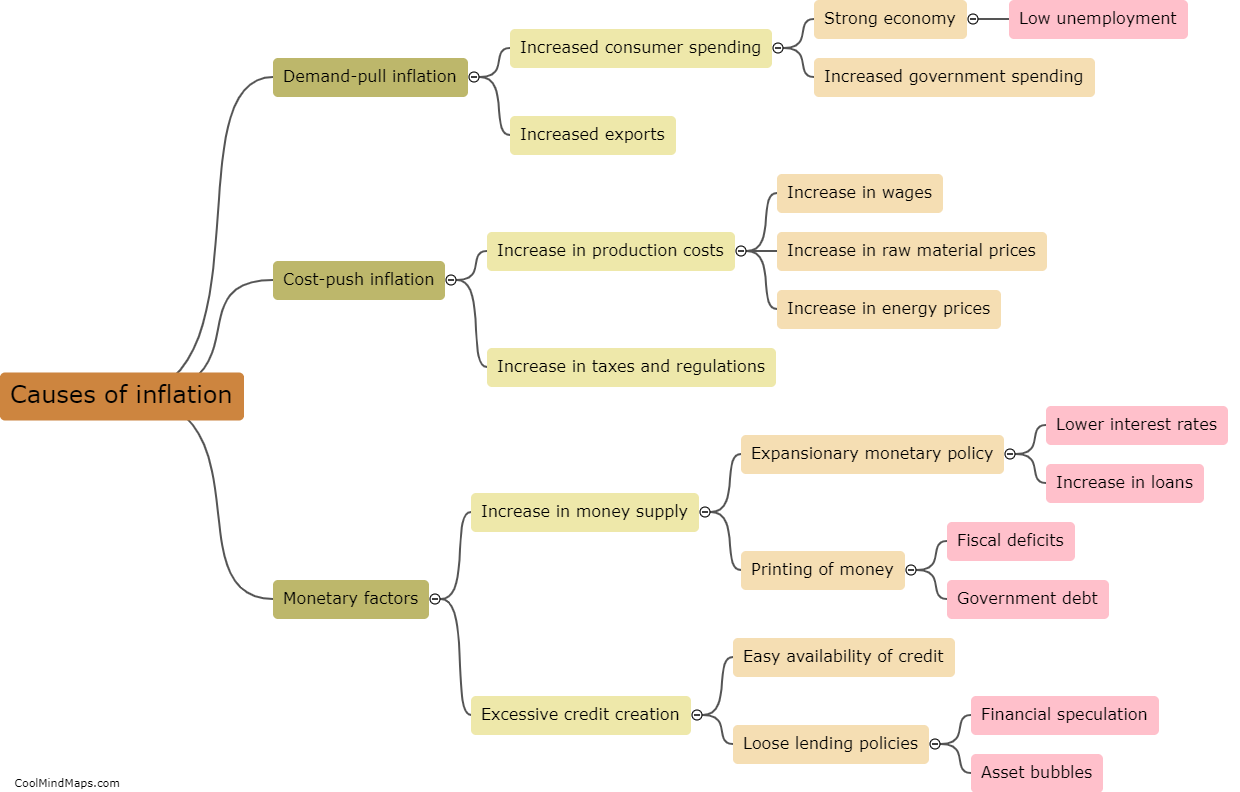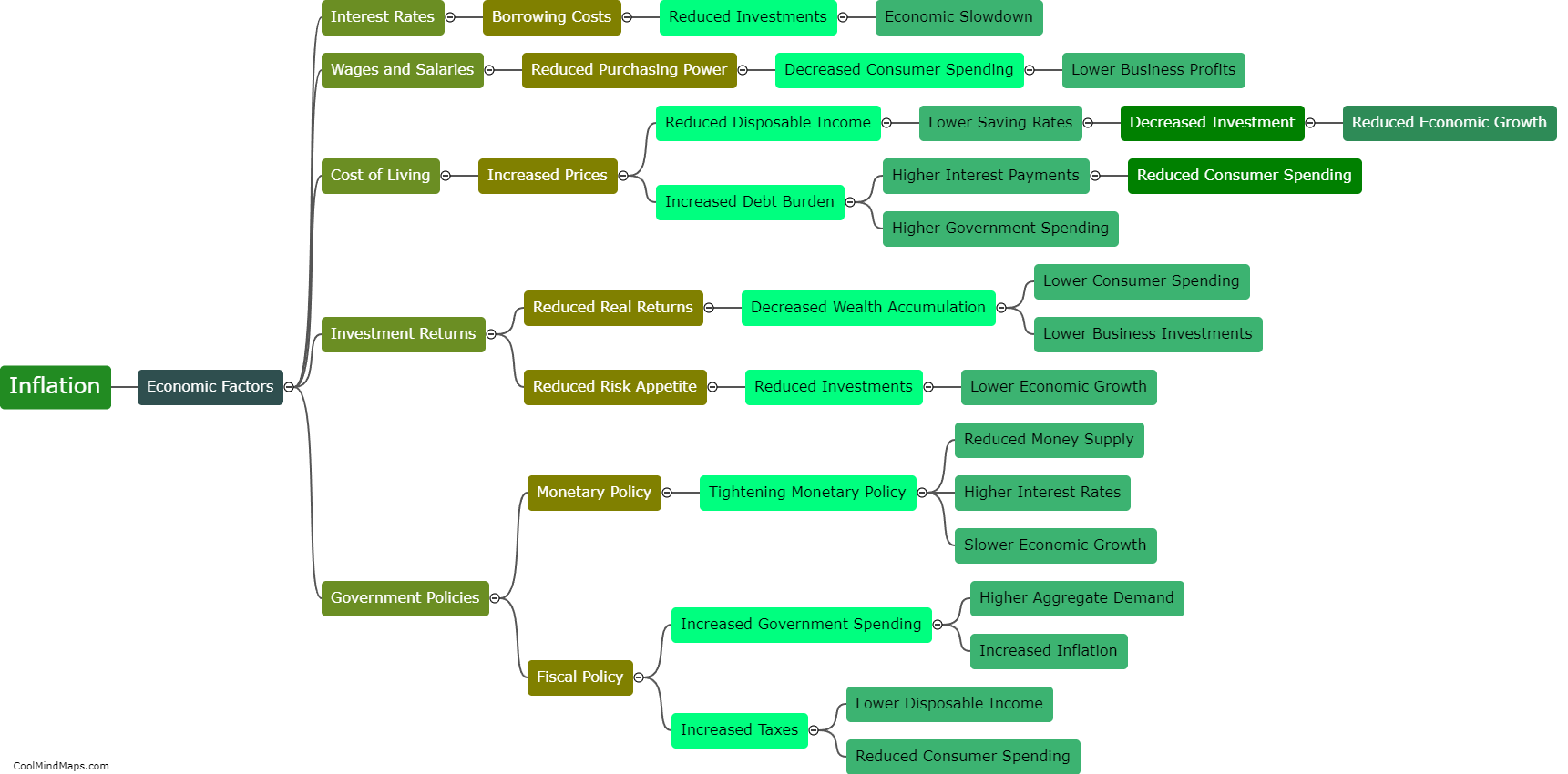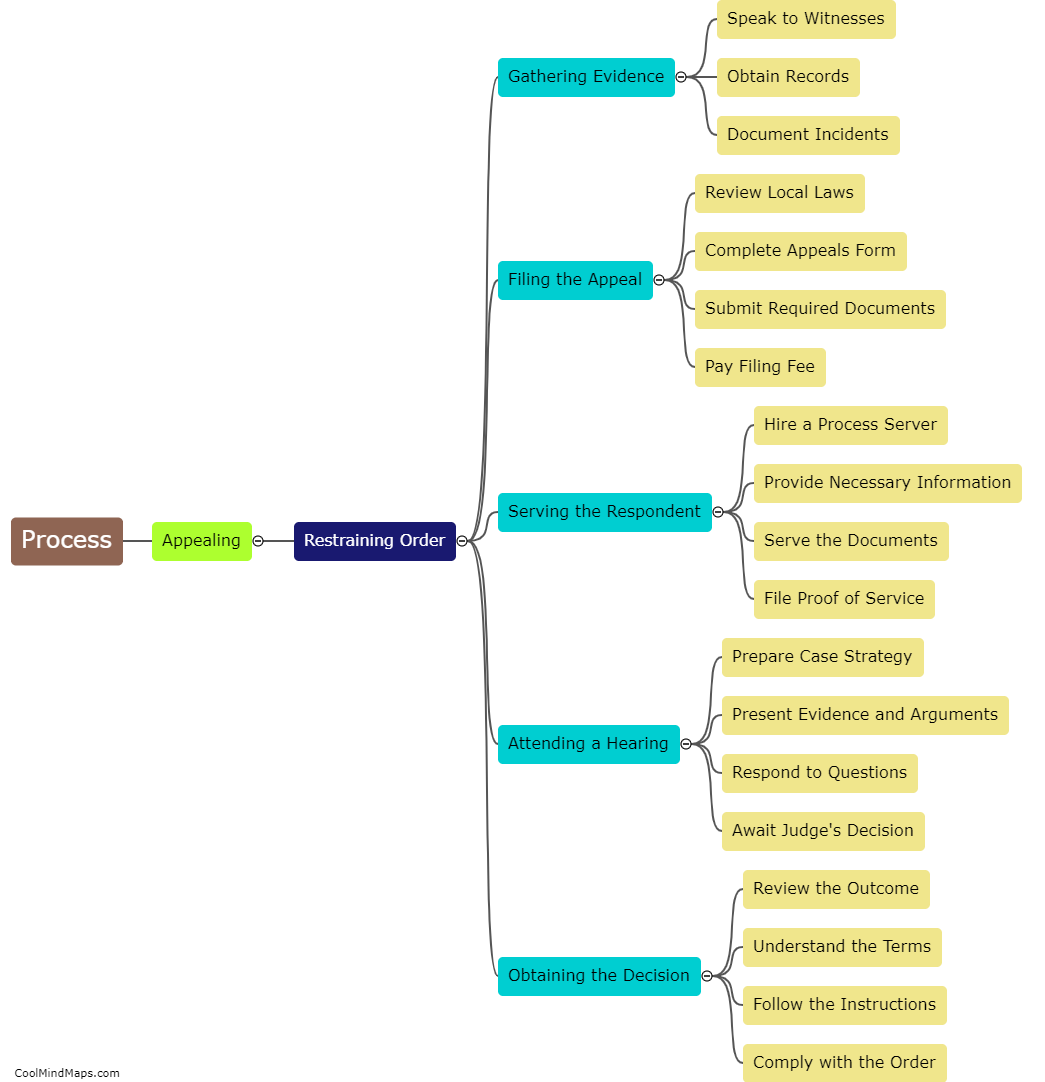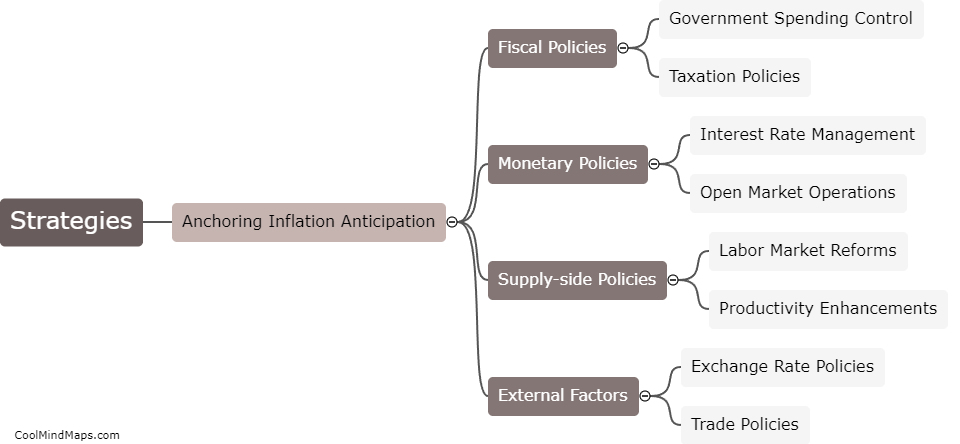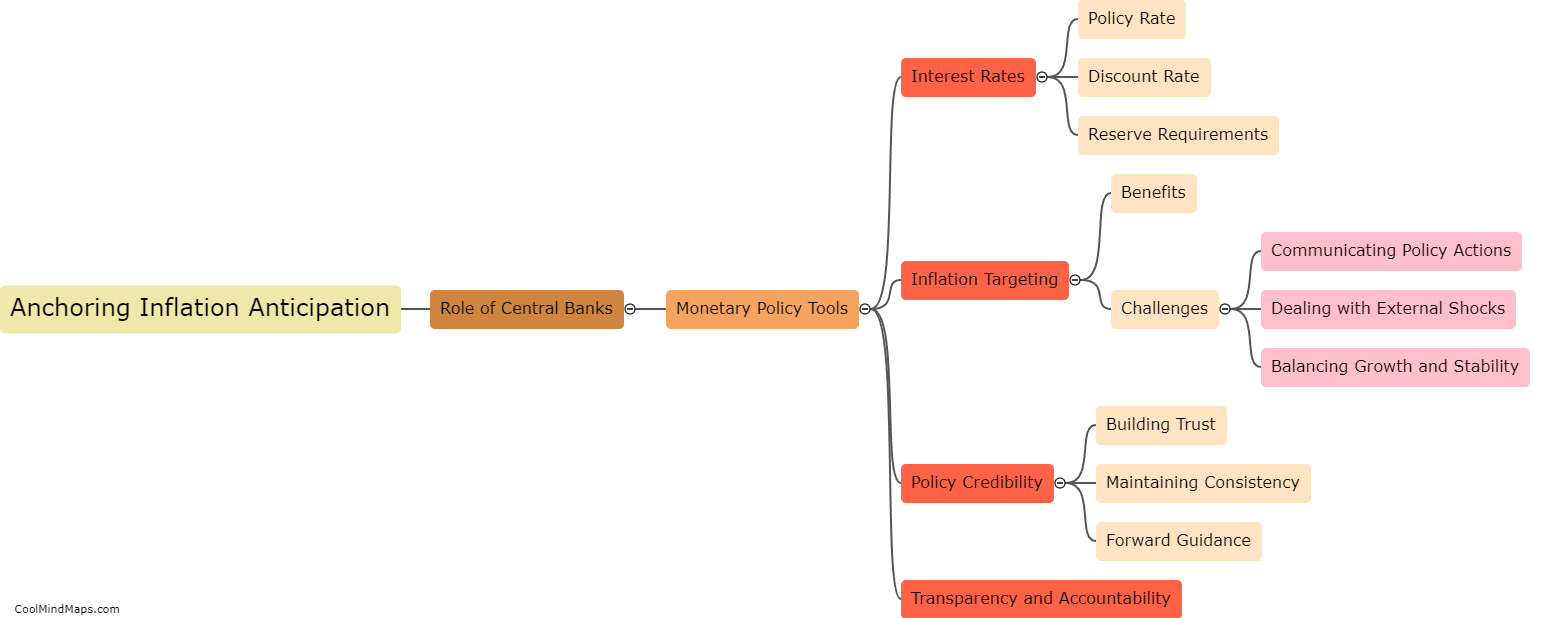What is deflation?
Deflation refers to a sustained decrease in the overall price level of goods and services in an economy. It is the opposite of inflation, where prices rise over time. Deflation occurs when the supply of goods and services outpaces the demand for them, resulting in a decrease in prices. This can be driven by various factors such as reduced consumer spending, increased saving, or a decline in money supply. While deflation may seem beneficial as it makes products cheaper, it can have detrimental effects on the economy, such as reduced business profits, lower wages, and increased unemployment. Additionally, deflation can lead to a vicious cycle where consumers delay purchases, anticipating further price declines, further exacerbating the economic downturn. Central banks and governments often try to counter deflation through monetary and fiscal policies to encourage spending and stimulate economic growth.
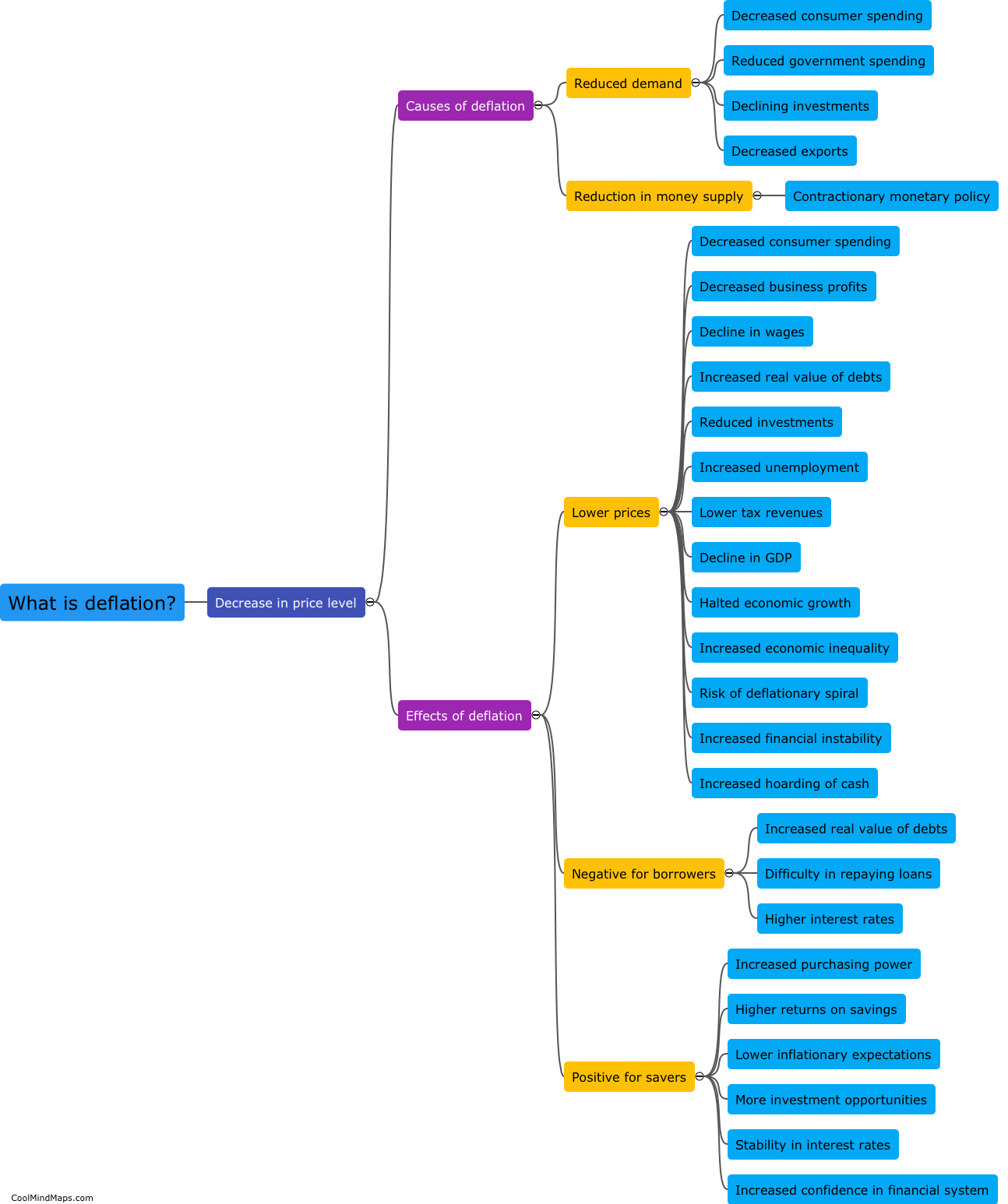
This mind map was published on 17 September 2023 and has been viewed 102 times.




